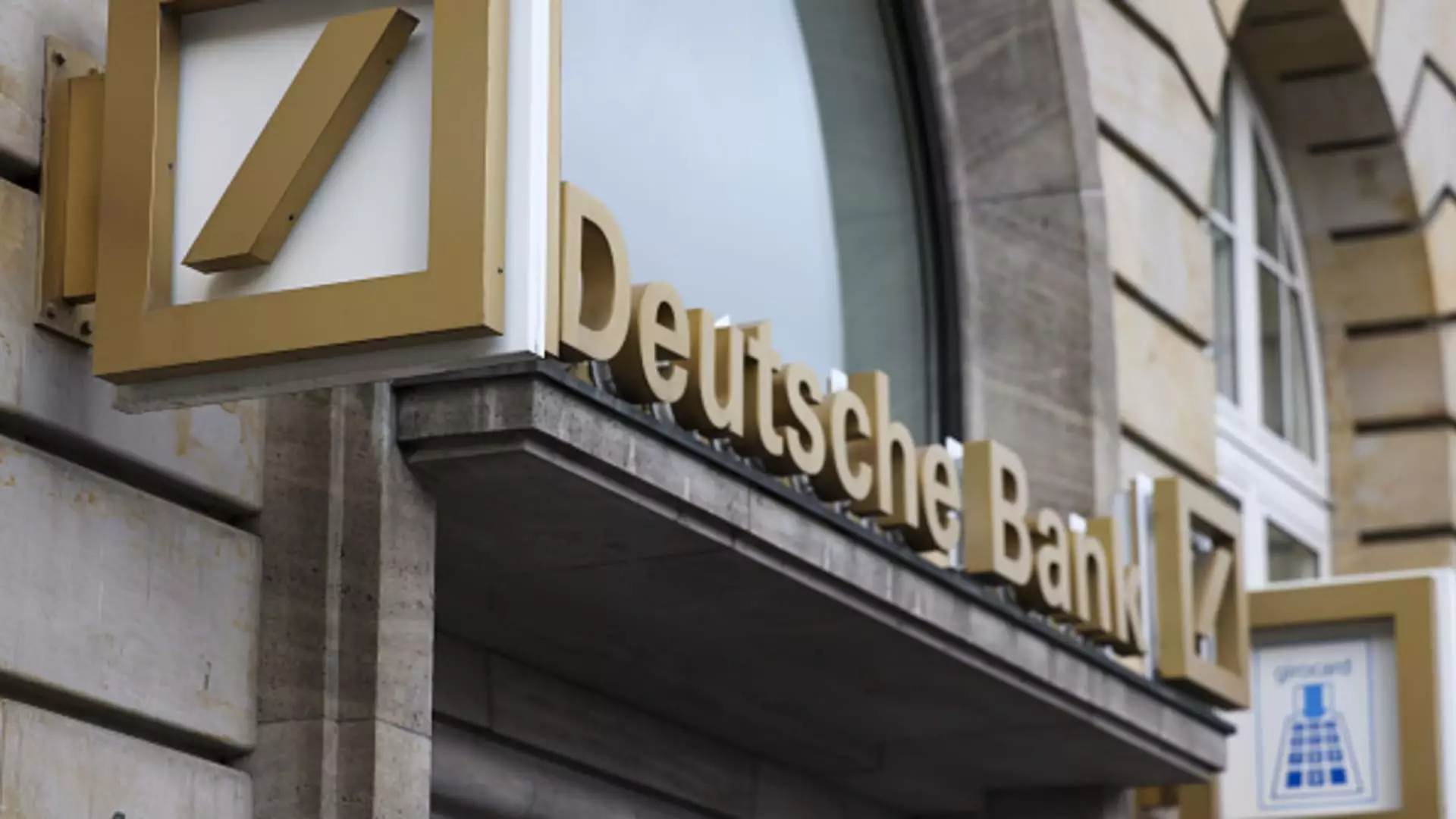Deutsche Bank has achieved a remarkable turnaround in its financial fortunes, reporting a net profit of 1.461 billion euros ($1.58 billion) for the third quarter of this year. This marks a significant rebound after the bank’s disappointing loss of 143 million euros in the prior quarter. Analyst forecasts had anticipated a more modest profit of 1.047 billion euros, demonstrating that the bank has not only met but exceeded market expectations. This impressive performance can be attributed to a marked increase in revenue, which surged to 7.5 billion euros compared to the anticipated 7.338 billion euros.
The bank’s robust profit before tax stood at 2.26 billion euros, reflecting a noteworthy year-over-year growth of 31%. Such growth signifies a strong recovery trajectory and raises optimism about the lender’s operational efficiency. Deutsche Bank also reported a substantial increase in its Common Equity Tier 1 (CET1) capital ratio, rising to 13.8%, an indication of its strengthening solvency. This growth in capital stability comes at a critical juncture for the bank, as it seeks to regain investor confidence and stabilize its market position.
However, Deutsche Bank’s path to recovery has not been without challenges. The lender faced significant litigation surrounding its acquisition of Postbank, which previously hampered its financial reporting and led to the suspension of share buyback programs. Recent developments have seen the bank settle with a substantial portion—around 60%—of plaintiffs in the ongoing legal dispute, allowing it to release 440 million euros from its litigation provisions. This strategic financial maneuver played a crucial role in the bank’s ability to report higher profits for the third quarter.
In a wider context, Deutsche Bank’s management, led by CEO Christian Sewing, has indicated a commitment to sustainable growth and capital returns to shareholders. Sewing’s assertion that the bank is poised to exceed its initial goals for shareholder distributions underscores a bullish outlook for future financial health. Coupled with newly applied requests for share repurchase, the bank appears ready to enhance its capital markets presence.
An essential component of Deutsche Bank’s recovery is its investment banking sector, which reported revenues of 2.5 billion euros—an 11% increase from the previous year. Notably, growth in the fixed income and currencies division has contributed to this upswing, spotlighting the bank’s ability to adapt and thrive in a competitive environment. Similarly, the asset management division also reported a net revenue increase of 11%, reaching 660 million euros, confirming that diversification in services can yield positive results.
However, while Deutsche Bank reaps the rewards of cost management and operational improvements, the landscape for European banks remains challenging. The banking sector is under scrutiny as it attempts to maintain profitability in a climate of declining interest rates, particularly as the European Central Bank has initiated a shift in monetary policy. This backdrop presents a complex challenge that requires robust strategies to sustain growth alongside U.S. counterparts, whose earning potential seems to be benefiting from a different rate environment.
In response to these challenges, Deutsche Bank has embarked on a significant cost-reduction initiative to trim its workforce by 3,500 positions by 2025. This decision reflects the bank’s strategic planning to enhance efficiency and long-term profitability. As of now, the bank employs 90,236 individuals, having made adjustments that include hiring to bolster specific areas of its business despite ongoing cutbacks.
The broader banking industry is also experiencing meaningful transformations, with other European banks set to release their earnings soon. The market’s focus will undoubtedly lie on competitive performance metrics, especially in light of developments surrounding potential mergers within the sector. Deutsche Bank’s distancing from takeover talks with domestic rival Commerzbank indicates a strategic choice to consolidate its current market standing rather than pursue rapid growth through acquisitions.
Deutsche Bank’s third-quarter performance is indicative of its potential to return to a path of growth following recent hurdles. The improvement in profits, alongside strategic settlements in litigation and effective revenue generation in key divisions, bolsters investor confidence in the bank’s forthcoming journey. Nonetheless, the financial landscape is volatile, and the looming pressures from internal cost management and external competitive forces will require careful navigation. The bank’s commitment to sustainable growth, coupled with adaptive strategies, will be crucial as it seeks to solidify its standing among European banking leaders in an evolving market landscape.


Leave a Reply